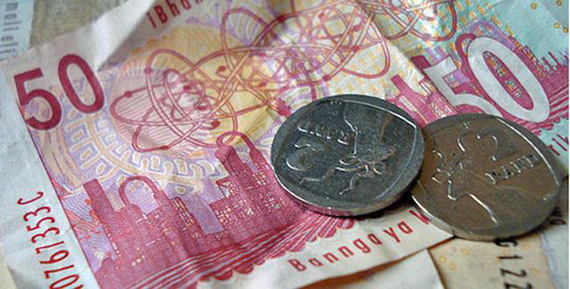
SOME Zimbabweans based in South Africa, popularly known as injiva, have cried foul over the rand and United States dollar exchange rate alleging that they are being defrauded by some local shops and individuals who are taking advantage of the festive season. MTHANDAZO NYONI OWN CORRESPONDENT
Following the collapse of the Zimbabwe dollar in 2009 after world-record inflation levels, the government adopted a multiple currency system in which the US dollar, the South African rand and the Botswana pula are the dominant currencies.
There has often been confusion on the exchange rate with different shops adopting different rates.
As of yesterday, the official exchange rate was $1 to R10,36 and $1 was equivalent to P8,70.
However, the dollar/rand exchange rate varies from $1:R10 or R13 while the pula is treated just like the rand despite being stronger than the South African currency.
Some Zimbabweans based in South Africa that spoke to Southern Eye yesterday complained that this lack of consistence on the exchange rate was unfair to them and some shops and individuals, particularly vendors, were taking advantage of the confusion and their ignorance to dupe them.
“I am failing to understand the actual rate between the rand and dollar. The moment people realise that you speak isiZulu, then your money is gone,” one injiva who only identified himself as Mabhonsa, said.
“For example, on Monday I went to buy five pies. I asked the shopkeeper how much they were and I was told they go for $1 each. I gave him R100, but he did not give me any change so in the end I just assumed that $1 was equivalent to R20.
- Chamisa under fire over US$120K donation
- Mavhunga puts DeMbare into Chibuku quarterfinals
- Pension funds bet on Cabora Bassa oilfields
- Councils defy govt fire tender directive
Keep Reading
“I realised it later when I was telling my wife that Zimbabwean pies are too expensive. She laughed at me and told me that $1 is equivalent to R10 or R10,50,” he said. Another one who identified herself as Mabuza said airtime vendors, especially those at Egodini, had a tendency of hiking airtime juice cards if they realised they were dealing with an injiva.
“I wanted $2 worth of airtime and gave the woman selling them R20, but she said I should add R10.
“People should stop this criminal behaviour because what they forget is that we are also struggling as much as they are,” Mabuza said.
Some injiva lamented the brazen corruption exhibited by the police manning roadblocks between Beitbridge and Bulawayo.
“From Beitbridge to Bulawayo we were made to fork out R2 000 as bribes by the police for virtually non-existent requirements. It’s worse if you are driving a vehicle with South African licence plates,” Mthulisi Maphosa said.
“I don’t know whether they think we have loads of money or this is how much corruption now exists in Zimbabwe.
“We just pay whatever they ask for to avoid unnecessary delays, but we appeal to the authorities to root out this naked corruption in our country before it gets totally out of hand,” he added.










